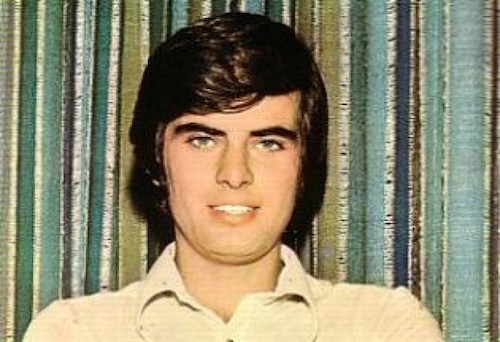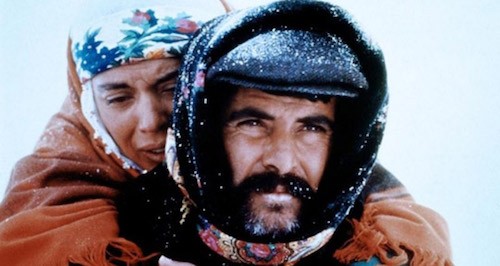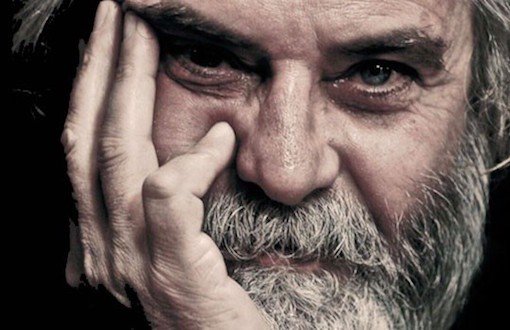Click to read the article in Kurdish / Turkish
The death of Tarık Akan, the virtuoso actor of Turkish cinema, was announced on Friday by the Nazım Hikmet Culture and Art Foundation.
In a statement, the foundation said:
“Our dear friend Tarık Akan, The unforgettable actor, writer of ‘Mother, There are Lice on My Head’ (Anne Kafamda Bit Var), militant advocate of peace, democracy and freedom for his country and his people, tireless fighter for ‘Days of Bread, Flowers and Freedom’, who showed the world the beauties of being an artist, went to great lengths to secure a bright future for his country, and was a dear friend of Nazım Hikmet and active member of the Nazım Hikmet Foundation from its foundation to today, died on the morning of Friday 16 September 2016. May he rest in peace.”
Tarık Akan had been receiving various treatments.
He was 66 years old.
Who was Tarık Akan?

Tarık Akan was born in Istanbul as Tahsin Tarık Üregül on 13 December 1949. Because his father was a military officer, he went to primary school in more than one province. He completed middle school and high school in Bakırköy.
He studied machine engineering at Yıldız Teknik University, after which he went to journalism academy.
Before he began acting in films, he worked as a lifeguard and a street trader.
In 1970 he won the Cinema Artist Competition launched by Ses Magazine, and the following year took the name Tarık Akan when he appeared in the film “Like a Wilting Leaf” (Solan Bir Yaprak Gibi).
37 films in 5 years

Know as the ‘pretty boy of Yeşilçam’ (the zenith of Turkish cinema from the 1950s to late 70s), Akan appeared in 37 films from 1971-75.
It was during these years that ‘The Blue Bead’ (Mavi Boncuk) with Emel Sayın, ‘My Dear Brother’ (Sev Kardeşim) with Hülya Koçyiğit, ‘Zehra the Night Owl’ (Gece Kuşu Zehra) with Hale Soygazi and ‘The Dunce Class’ (Hababam Sınıfı) were made.
Later he continued his career with social films, such as “River” (Nehir), “The Mine” (Maden), “The Flock” (Sürü), “The Road” (Yol) and “The Canal” (Kanal).
On 12 September Akan stood trial for a 12-year sentence, and was eventually sentenced to 2.5 months in prison. It was in this period of his life, in 2002, that he wrote the book “Mother there are Lice on My Head” “Anne Kafamda Bit Var”.
Known as an opponent of the government, Akan supported the Gezi Park resistance, and had a case opened against him because he was one of the artists who made the “Stop Life” call for Berkin Elvan. He was also among the artists who called on the state and the PKK to stop the clashes.
After 1980 he worked for a while renting out taxis.
In 1991, he founded the private Taş College, adopting the build-operate-transfer system of the private Taş Primary School where he himself had earlier studied.
He worked as deputy chairman of the Nazım Hikmet Foundation, and made five documentaries for the foundation. Work on a sixth documentary is continuing. After the death of Aziz Nesin, Akan took over the chairmanship of the foundation from Nesin’s son, Ali.
Prizes
Tarık Akan fit over 100 films into his career. At the Golden Orange Film Festival he won best male actor in 1973 for “Guilty” (Suçlu), in 1978 for “The Mine” (Maden), in 1980 for “The Vow” (Adak) and “The Flock” (Sürü), in 1984 for “The Wrestler” (Pehlivan), in 1989 for “The Third Eye” (Üçüncü Göz), in 1990 for “Blackout Nights”, in 2003 for “My Rose” (Gülüm), and a lifetime achievement award in 1996. At the Adana Golden Cocoon Film Festival he won the prize for best male actor in 1992 for “Blackout Nights”. In 2006 he won the Award of Honor at the Film Writers’ Association Awards, in 2009 he won the Services to Cinema award at the Contemporary Cinema Actors’ Association Awards, and in 1985 he won the Honorable Mention at the Berlin International Film Festival for “Pehlivan” (The Wrestler). He was nominated for best actor in “The Way” (Yol) at the 1982 Cannes Film Festival. (EA/DG)




